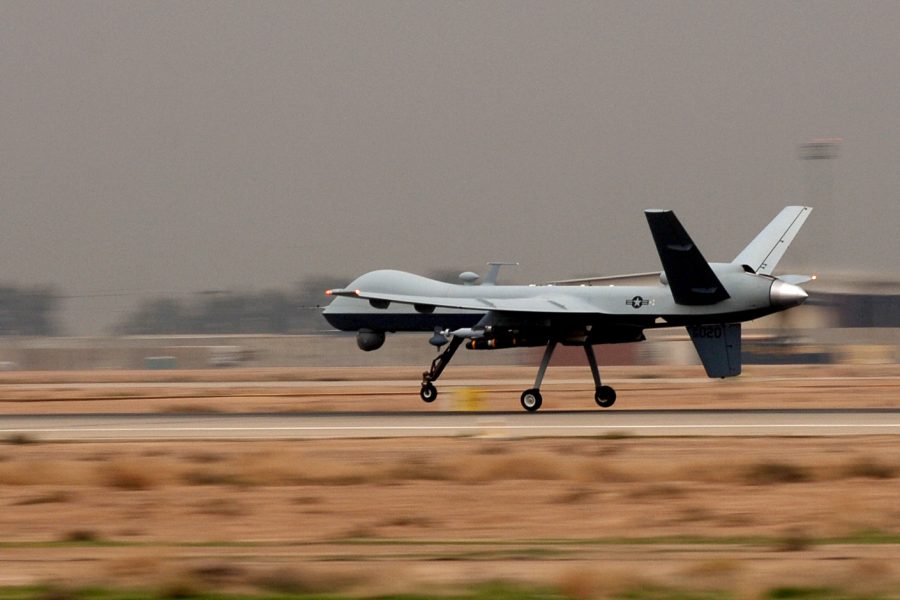The U.S. conducted a rare drone strike in Baghdad on Jan. 4 that killed a leader of an Iranian-backed militia, in an effort to deter further attacks on American forces in Iraq and Syria.
The Pentagon described the strike, which took place at noon local time, as a “necessary and proportionate” step to eliminate a ranking Iraqi militia figure who has been implicated in planning and carrying out attacks on U.S. service personnel.
The target was Mushtaq Jawad Kazim al-Jawari, also known as Abu Taqwa, Pentagon Press Secretary Air Force Maj. Gen. Patrick S. Ryder told reporters.
A leader of the militia Harakat-al-Nujaba, Abu Taqwa was traveling in a vehicle at the time of the attack. The strike also killed another member of the group.
The strike was a first for the Biden administration: the first known targeted killing of an Iran-backed militia leader.
Iraq’s government was quick to condemn the strike, which it said violated the agreement that allows some 2,500 U.S. troops to stay in Iraq so they can mentor Iraqi forces who are battling with remnants of the Islamic State.
Iraqi security forces spokesperson Maj. Gen. Yehia Rasool said the U.S. strike was a “blatant aggression and violation of Iraq’s sovereignty and security” and “akin to terrorist activities.”
But Iranian-backed militias have carried out at least 120 attacks against the U.S. troops in Iraq and Syria since Oct. 17, according to a U.S. military official, one of which critically injured a service member.
“The U.S. always maintains the inherent right of self-defense if our forces are threatened,” Ryder said.
The broader question is whether the action will deter future attacks by Iranian-backed militias or spur them to step up their drone and rocket attacks on American personnel.
Since Hamas terrorists attacked Israel on Oct. 7 and Israel responded by sending forces into Gaza, the Biden administration has tried to carry out a difficult balancing act.
It has sought to avoid a wider war in the region and inflaming the political situation inside Iraq, including the debate over the U.S. military presence there. Yet the roughly half-dozen more modest strikes the U.S. previously carried out in Iraq and Syria have failed to dissuade the Iran-backed militias from continuing their attacks.
The Pentagon provided few details about this latest operation, including the type of aircraft that carried it out. The U.S. action came a day after the fourth anniversary of the Trump administration’s drone attack that killed Iran paramilitary leader Qassem Soleimani near the Baghdad airport.
Harakat al-Nujaba was designated as a foreign terrorist organization by the State Department in 2019. According to an analysis by the Washington Institute for Near East Policy, the militia has been responsible for 69 percent of attacks on U.S. forces in Iraq and Syria since Oct. 17. The group is thought to have carried out a March 2023 drone attack in eastern Syria that killed a U.S. contractor. A spokesman for the group last year praised that attack but denied the militia was responsible.

